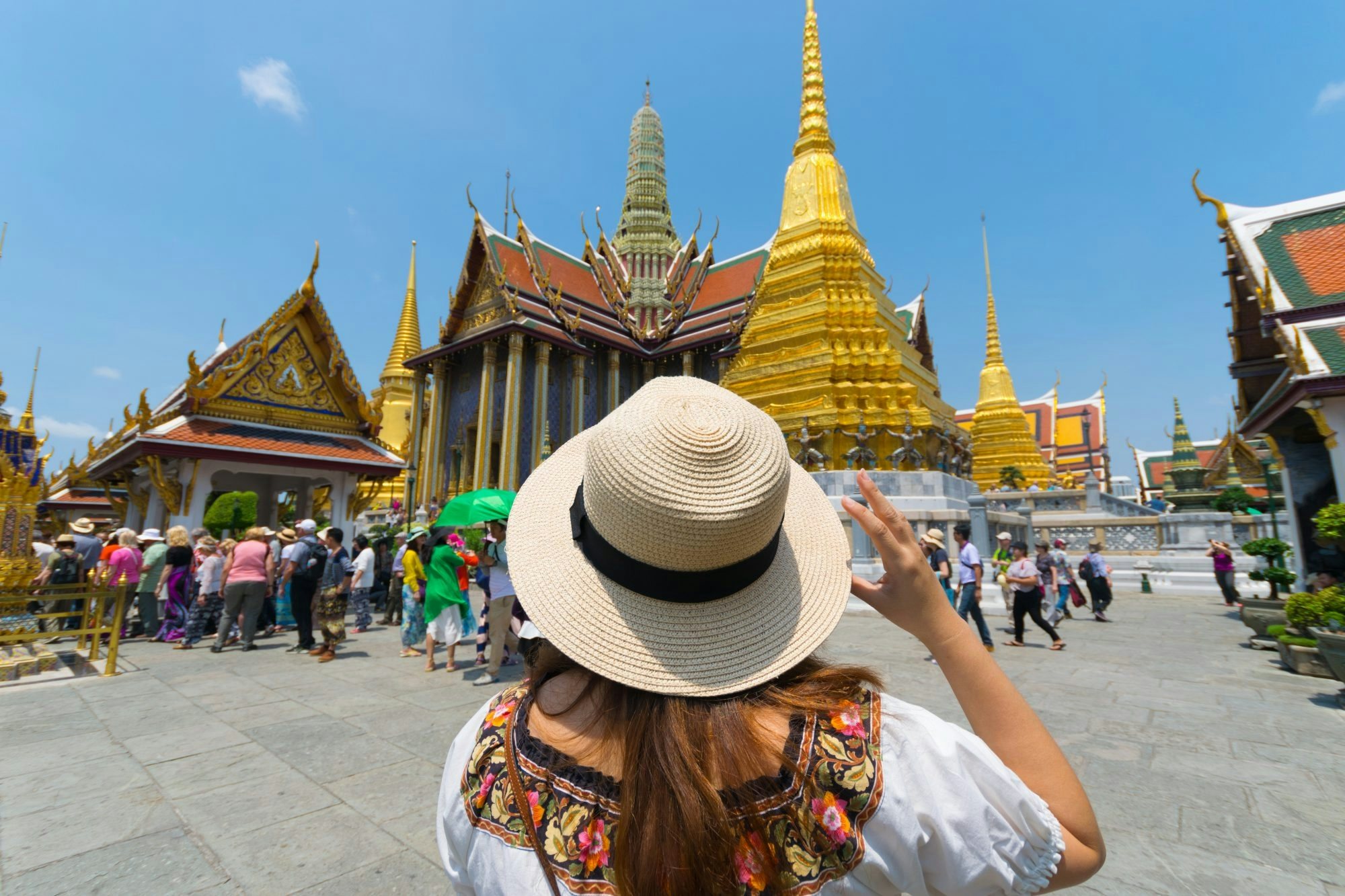Following Thailand's King Bhumibol Adulyadej’s recent passing, China’s tourism industry is scrambling find suitable arrangements for tours scheduled in the 30-day period of mourning that follows the King’s passing.
As Thailand is starting to come to grips with the loss of their beloved King Bhumibol Adulyadej, Chinese tour operators are trying to make the best of the situation by issuing refunds, canceling trips, and disseminating strongly worded travel advice for travelers bound for Thailand.
The Thai government announced a year-long period of mourning in the country shortly after the King’s death. Friday, October 14 was announced a government holiday and also marks the beginning of a 30-day period when flags will fly at half-mast, and with entertainment activities to be either canceled or postponed to dates beyond this period. The Thai government also emphasized that “joyful events” should be avoided or “toned down” during this period.
As one of the world’s most popular tourist destinations, the international tourism industry is weighing different alternatives on how to deal with the new situation in the country.
Chinese tourism to Thailand has boomed in recent years. (Data from Ministry of Tourism and Sports, Thailand. *2016 data is a projection.)
Chinese visitors, in particular, have boomed in Thailand in recent years, with 10 million Chinese visitors projected for 2016, up from 7.93 million visitors in 2015. Industry estimates put the number of Chinese tourists in Thailand during the Chinese National Day Golden Week at 220,000—a 30 percent increase year-over-year. With the current unprecedented situation in the country, the projected number may take a significant hit depending on how Chinese tour operators respond to the situation.
Tourists and overseas tour operators are being told to not drink alcohol, wear muted colors, and to avoid laughing while visiting Thailand during the initial 30-day period.
Chinese tourists, notorious for poor behavior in the country, have previously been subject to Thai government scrutiny, for instance by issuing etiquette manuals specifically addressing Chinese visitors. Famous Thai personalities have also been sharing their negative experiences with Chinese tourists in recent years, racking up millions of views online. As Jing Daily previously reported, Thailand has also been adamant in cracking down on budget tourists from China in efforts to improve the profitability of its tourism sector and improving tourism quality. The efforts have also been supported by China, which joined forces with Thailand in cracking down on so-called zero-dollar tours. China, increasingly viewing international tourism as a source of soft power, has also introduced a tourism blacklist for individuals that have proven to misbehave abroad.
The delicate situation that has now arisen therefore makes Chinese tour operators’ response to the temporary decency rules a sensitive topic, both diplomatically, but also towards customers who had expected fun-filled travels in Thailand.
China’s tourism authority, CNTA, has yet to publish any official advice for tour operators and regular tourists.
However, many Chinese tour operators have already started reacting to the news. Ctrip, China’s leading online travel agent, is reminding prospective tourists of the recent developments in Thailand, and are advising all travelers to stick to the rules announced by the Thai government. Lvmama, another major player in the market, is offering similar advice to travelers. Neither has announced that they will offer refunds for trips booked to Thailand.
Liu Jun, an employee at a state-owned travel agency in China, told the South China Morning Post that they will suspend all group tours to Thailand in the period since many popular sights and entertainment venues will be closed to the public. Indeed, group tours to Thailand are likely to take the biggest hit as they follow detailed itineraries that include many sights and activities that will be affected by the period of mourning. Free independent travelers (FITs) may have less of a shot at refunds and will have to change their own itineraries in accordance to the new situation in Thailand.
Chinese tourism to Thailand has become an important source of growth in a country where tourism accounts for approximately 10 percent of GDP. Although growth has remained resilient in the face of Zika fears and budget traveler crackdowns, it remains to be seen if Thailand’s year of mourning will have any significant impact on this growth.
Airports of Thailand (AOT.Thailand), a popular stock among investors betting on Chinese outbound tourism, rose by 5 percent on the stock exchange Friday—indicating that investors expect a smooth transition in the vacuum left by the Thai King. Chinese tourists, known to be security-conscious, may be more sensitive to political power struggles than to closed tourist sights.
Sudden drops in Chinese tourists have proven to cause protests, so ensuring that tourism exports remain resilient lies in the Thai government’s best interests as well—with or without colorful clothes.
